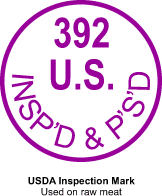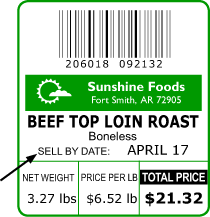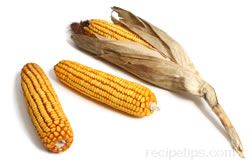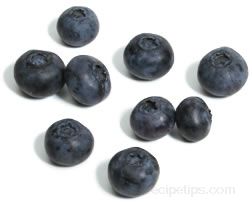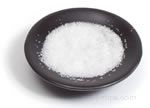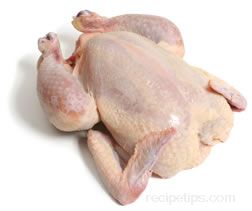Organic Foods | Natural Foods
Organic Foods
| Many consumers are confused when they hear the word, "organic." The term often invokes the notion that organic foods are so much more nutritious, when this is not necessarily the case. Organic simply refers to a method of raising and processing food rather than referencing any nutritional advantages that the food may have. It also does not refer to foods that are inherently safer to consume than conventionally raised and processed foods. |
|
Organic Requirements
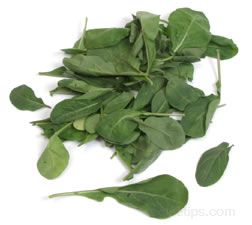 Depending on the type of food, organic usually refers to foods that have been grown or raised naturally, without the aid of commercially manufactured products designed to increase yield or protect against pests or diseases. In other words, organic crops, for example, cannot be fertilized with commercially prepared products and they cannot be sprayed with pesticides or herbicides. Organic eggs and dairy products must come from animals that were given feed in which all of the ingredients were grown without the aid of these commercial fertilizers, pesticides, and herbicides. Meat cannot be labeled organic if it is obtained from livestock and poultry that have received antibiotics and growth hormones or have been fed with foods that are not free of chemicals. Depending on the type of food, organic usually refers to foods that have been grown or raised naturally, without the aid of commercially manufactured products designed to increase yield or protect against pests or diseases. In other words, organic crops, for example, cannot be fertilized with commercially prepared products and they cannot be sprayed with pesticides or herbicides. Organic eggs and dairy products must come from animals that were given feed in which all of the ingredients were grown without the aid of these commercial fertilizers, pesticides, and herbicides. Meat cannot be labeled organic if it is obtained from livestock and poultry that have received antibiotics and growth hormones or have been fed with foods that are not free of chemicals.
In order for a food to be labeled organic, farms and processing centers must be certified by a USDA accredited agency as complying with strict guidelines for raising and processing organic foods.
A large share of the populace is concerned with the use of all the commercially available fertilizers and chemicals used as aids in growing crops and livestock. They are troubled by the possibility of these chemicals entering the food supply or polluting waterways and ground water, so the choice to purchase organic foods is a conscious effort to aid in the prevention of these possibilities. However, due to the strict guidelines that growers and processors must follow, the cost of raising most organic foods is usually higher than their conventionally grown and processed counterparts and therefore the cost is higher for the consumer as well. |
|
Organic Food Labeling
 By adhering to the USDA rules, a food product can be labeled as follows: By adhering to the USDA rules, a food product can be labeled as follows:
- 100% Percent Organic: refers to products produced with only organic ingredients.
- Organic: refers to products produced with 95% to 99% organic ingredients. The remaining 5% or less of the ingredients must be listed on the label and can consist of synthetics approved by the USDA.
- Made with Organic Ingredients: refers to products produced with 70% to 94% organic ingredients. The remaining percentage can be synthetics on the approved USDA list.
- Contains Organic Ingredients: a designation allowed for products that have less than 70% organic ingredients and those ingredients can be listed in the ingredient panel of the label.
- Non-Certified Organic: a designation that may be referenced for some food products when the item has been produced using organic practices but has not received certification from the USDA, since the process is lengthy and too expensive for some producers. To be classified as Non-Certified Organic, the soil used to grow the crops must have been free of chemical additives for at least three years.
|
Natural Foods
|
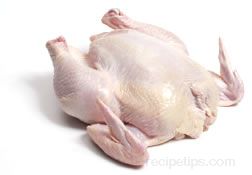 Foods labeled as "natural" can also be confusing to consumers, some of whom believe that it is another reference to organic when actually it refers to something completely different. Natural is a designation for foods that contain all natural ingredients. To be labeled as a natural product, the food must not contain artificial ingredients, artificial coloring or flavorings, or chemical preservatives. In addition, the food can be only minimally processed, however the processing may include traditional methods to preserve the food and to make it edible and safe to consume. Foods labeled as "natural" can also be confusing to consumers, some of whom believe that it is another reference to organic when actually it refers to something completely different. Natural is a designation for foods that contain all natural ingredients. To be labeled as a natural product, the food must not contain artificial ingredients, artificial coloring or flavorings, or chemical preservatives. In addition, the food can be only minimally processed, however the processing may include traditional methods to preserve the food and to make it edible and safe to consume.
Products designated as natural, are generally more expensive than standard versions, but there is often no significant difference in terms of taste and nutrition. However, fans of natural or all-natural foods consider the products to be more nutritious than highly processed versions and that the products are better for the environment in terms of raising or growing, processing, and handling. |
| Note: It is always a good practice to read food labels carefully to determine that a particular organic, natural, or conventional food item meets your specific requirements. |






 By adhering to the USDA rules, a food product can be labeled as follows:
By adhering to the USDA rules, a food product can be labeled as follows: Foods labeled as "natural" can also be confusing to consumers, some of whom believe that it is another reference to organic when actually it refers to something completely different. Natural is a designation for foods that contain all natural ingredients. To be labeled as a natural product, the food must not contain artificial ingredients, artificial coloring or flavorings, or chemical preservatives. In addition, the food can be only minimally processed, however the processing may include traditional methods to preserve the food and to make it edible and safe to consume.
Foods labeled as "natural" can also be confusing to consumers, some of whom believe that it is another reference to organic when actually it refers to something completely different. Natural is a designation for foods that contain all natural ingredients. To be labeled as a natural product, the food must not contain artificial ingredients, artificial coloring or flavorings, or chemical preservatives. In addition, the food can be only minimally processed, however the processing may include traditional methods to preserve the food and to make it edible and safe to consume.